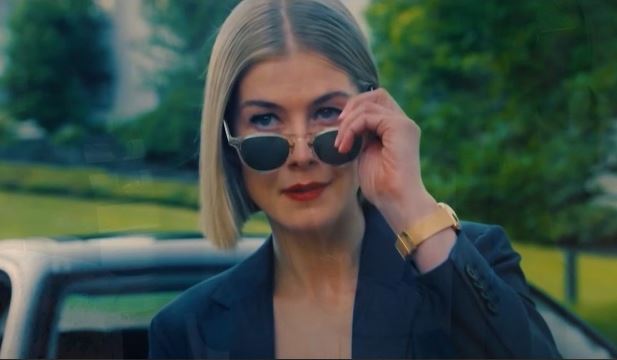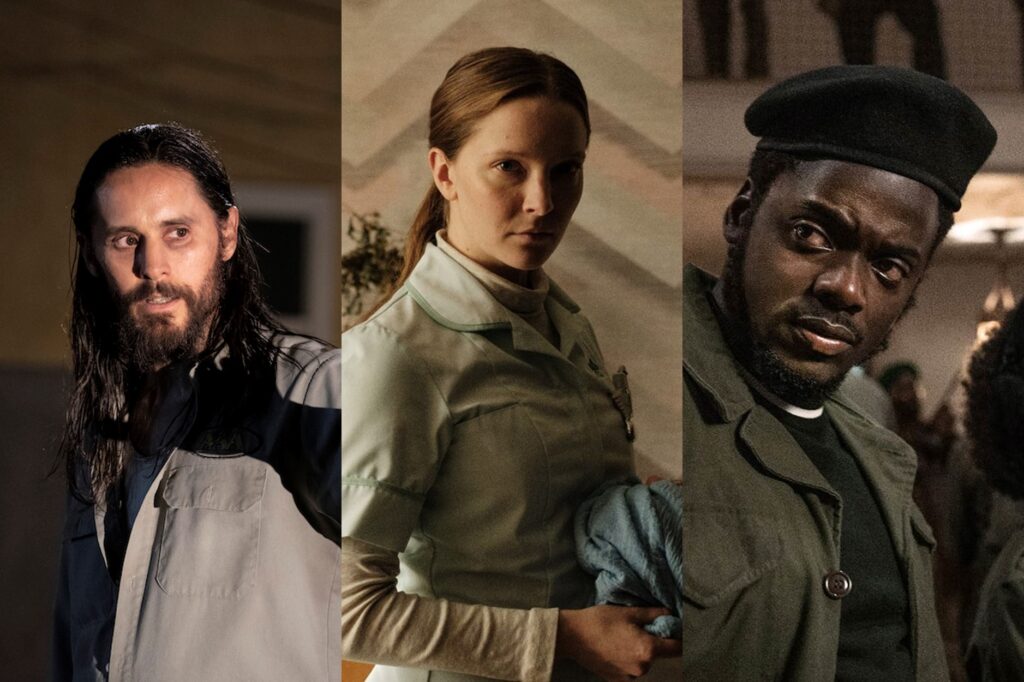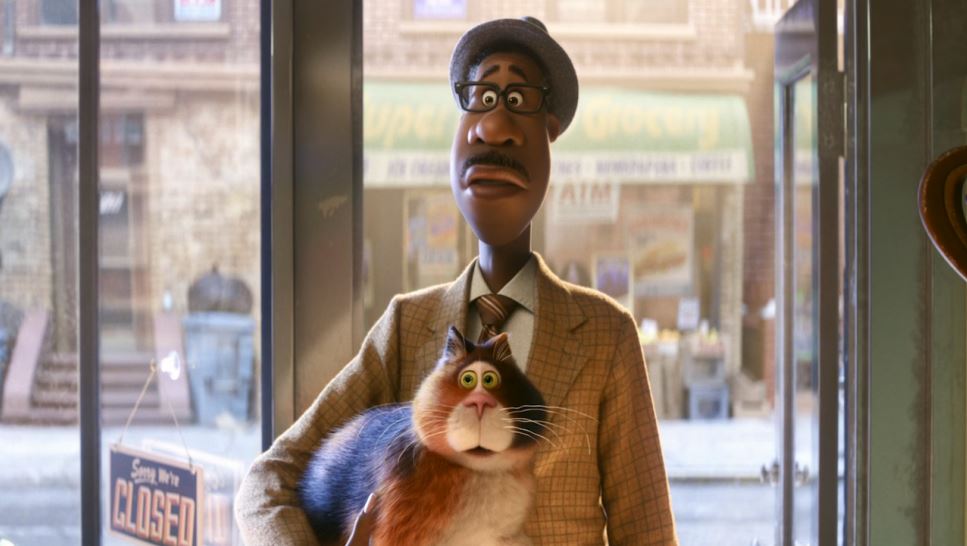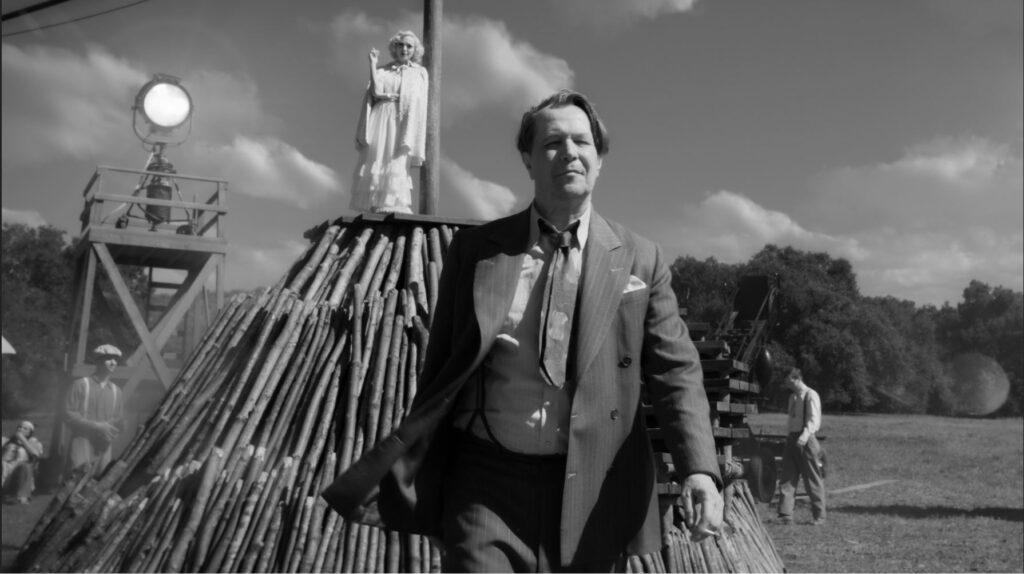I Care a Lot: Lies of the Guardians

Even before you see her blond bob, you know instantly that Rosamund Pike’s newest star vehicle will find her working in the same vein of coolly ruthless savagery that she mined so brilliantly in Gone Girl. That much is clear from her opening voiceover, which finds the crisply talented actor once again ditching her British lilt for a capable American accent, and which concludes with her declaring, “I am a fucking lioness.” It’s an accurate if unnecessary introduction; one glare from her cold-blue eyes or one puff from her vape pen, and it’s plain that Pike’s Marla Grayson is a lethal predator. She plays for keeps, even when the game is other people’s lives.
This description might sounds like the template for a dark and provocative study of sociopathy, but I Care a Lot isn’t especially interested in digging into the pathologies of its protagonist. It isn’t interested in much of anything, really, beyond treating viewers to a rollicking good time with bad people. And this, it mostly does. Written and directed with slick snap by J. Blakeson, it coasts amiably on the gifts of its cast and the jolts of its pulp, untroubled by its own vacuity. Small wonder Marla is its hero. Read More




